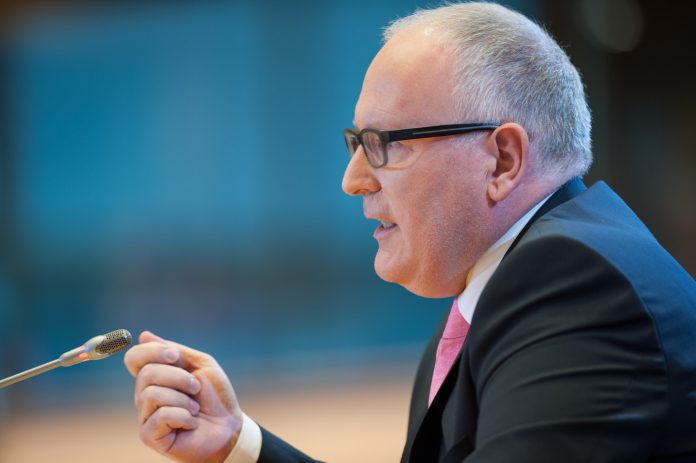The European Commission on April 17 welcomed the vote by the European Parliament on its proposals to reform the rules on European Political Parties and Foundations. These changes are aimed at increasing transparency, so people know what they are voting for in the European elections. They will also improve democratic legitimacy with funding better reflecting the electorate’s choices, and strengthen enforcement so that abuses of public money can be better tackled and funds reclaimed.
European Commission President Jean-Claude Juncker had raised the issue during his State of the Union address in September 2017. “Our Union needs a democratic leap forward. Too often Europe-wide elections have been reduced to nothing more than the sum of national campaigns. European democracy deserves better. We should be giving European parties the means to better organise themselves.”
Following the European Parliament’s vote, First Vice-President Frans Timmermans said: “This is an important reform and I am glad it is being completed so quickly. European political parties play a central and increasing role in creating a direct link between European citizens and the European political system. Citizens need to know who they are voting for when they cast their ballots in next year’s European elections, so it is good that these changes will make the links between national and European parties clearer. They will also make sure that the public money given to parties better reflects the votes their candidates have won, and help us claw back any funds which are misused.”
According to the European Commission, the revision of the Regulation on European Political Parties and Foundations will close loopholes which in the past led to the abuse of European taxpayers’ money. In some cases individual members of the same national party sponsored the creation of different European parties.
The changes adopted will make a closer link between vote share and funding by increasing the percentage of the total funding pot which is allocated on the basis of the election results to 90%, from the current 85%. Under the current system, 15% of funding was shared between all parties, regardless of the number of voters they represent.
The amendments will also boost transparency for European citizens on the links between European and national parties, by requiring national parties to display clearly on their websites the logo and political programme of their European party.
The new rules were approved by a majority of MEPs (561 votes to 89 with 36 abstentions).
“The institutions have worked together well to close loopholes which, until now, allowed a European Political Party to be created only for financial reasons,” said lead MEP Rainer Wieland (EPP, DE). “Cross-party membership will not be possible any more and funding will be linked more precisely to actual voting results at EU level, making European political parties more European and, as more logos will be published online, more visible at the national level.”
According to MEP Mercedes Bresso (S&D, IT), lowering the threshold for distribution of funds and focussing on visibility of national member parties will enhance the democratic representation of European political parties and foundations.
The next step now is for the European Council to approve the new regulation on April 26. Once the amendments enter into force, existing European political parties will have two months to submit proof that they still satisfy the registration criteria. If they do not, the party and its affiliated foundation will be deleted from the register.
The European Parliament wants to have the new rules in force before the end of June this year, when the call for applications for funding in 2019 (European election year) is due to be published.

